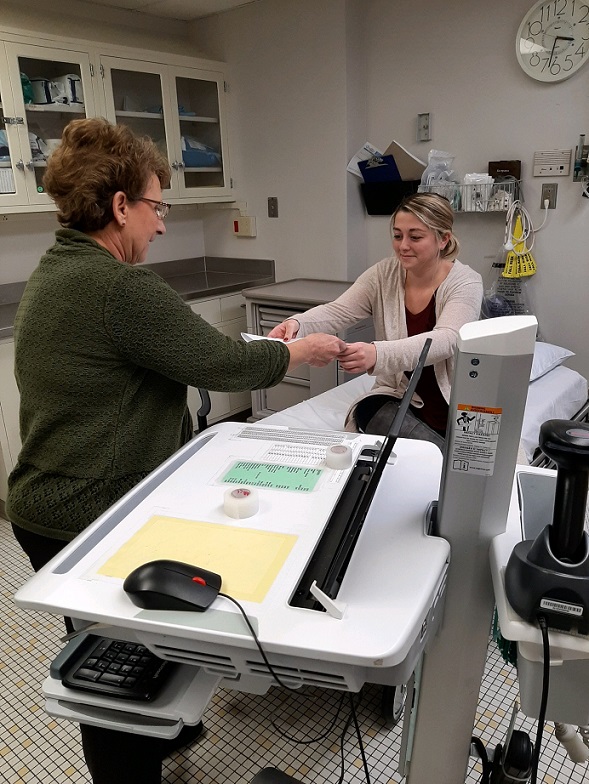
Deductibles, co-pays and health insurance can be confusing at times. And it is even worse when they change from year-to-year.
Penn Highlands is now explaining out-of-pocket responsibilities for services before its patients have a procedure done, and staff are also explaining what co-pays are expected, too.
“No more surprises,” said John Bruyere, Penn Highlands Healthcare corporate vice president of revenue cycle management. Insurances used to be a lot simpler to understand.
“Today, with so many changes in the insurance industry, Penn Highlands Healthcare wants to work with patients to help them understand what is and isn’t covered.
“We will help you understand your insurance and know what your responsibilities are,” Bruyere said.
This means that when a patient comes in for an appointment, his or her co-pay will be explained to him or her. It will also mean that co-pays will be expected at the check-in window at provider offices, the Emergency Departments, outpatient surgery areas and x-ray or imaging departments.
Previously, many people would have them billed, which takes a lot of time and resources for what can be handled conveniently on site.
Also, someone will be talking to patients about paying for treatments or services. This will be done before the day they are scheduled and will allow for patients to have a plan in place to know what the cost is and what is expected.
“Many times, an insurance company will send a letter about what is and isn’t covered,” Bruyere said. “But it comes after the appointment.
“This will be the same type of information but given beforehand by our business office staff. People don’t buy a car or any product without knowing what it costs. Healthcare should be just as transparent.”
“No one wants to talk about money when it comes to health care,” Bruyere said. “It sounds insensitive, but we have found that many people don’t understand the costs they are incurring, and in the end, our patients are surprised, hurt and, sometimes, angry.”
“And, of course, emergency situations and procedures are something totally different,” Bruyere said. “We may ask about co-pays and talk, but emergencies are emergencies.”
Why is Penn Highlands doing this now?
Penn Highlands has been one of the last health systems to implement what is called a “point of service collection.” Point of service collections have been a normal part of healthcare for more than 25 years in many places.
Of course, Penn Highlands has the ability to bill and take payments, but for smaller fees, it may be easier for all to pay upfront.
“If you look carefully at your insurance card, you will see there are co-payment amounts listed for emergency, office, specialists and urgent care visits. These are responsibilities set by insurers,” Bruyere said.
“And as most businesses buy their employees their insurances on the calendar year, this is a good time to review everything in the paperwork they give you for next year. File those papers where you can find them easily. With the holidays coming, it is easy to put them aside and lose them.”
“Healthcare costs can be confusing. We are hoping to take some of that stress and confusion away,” Bruyere said.



